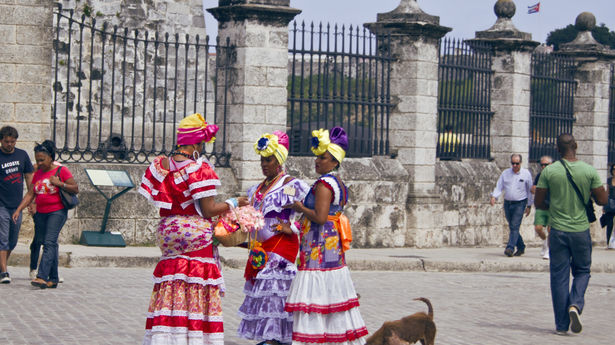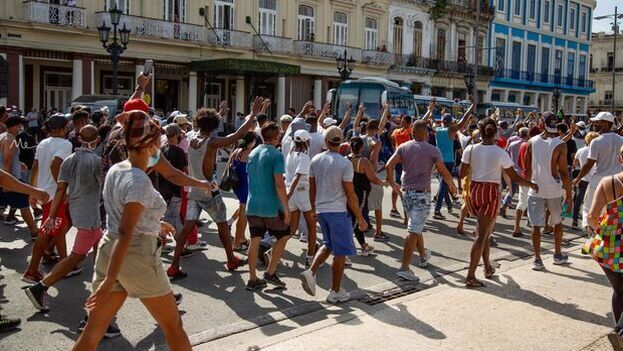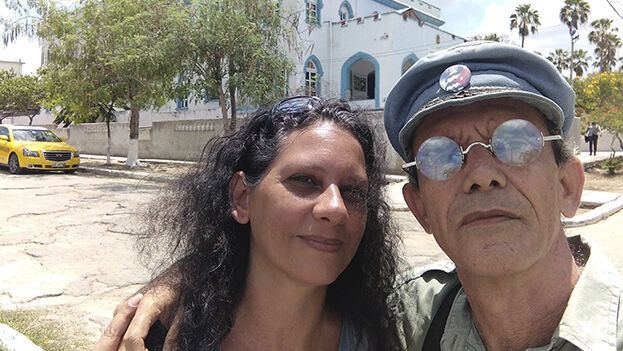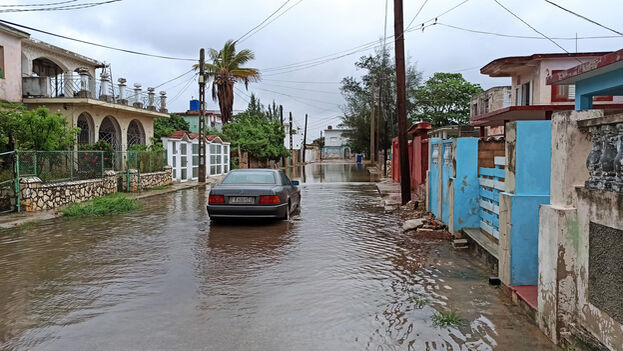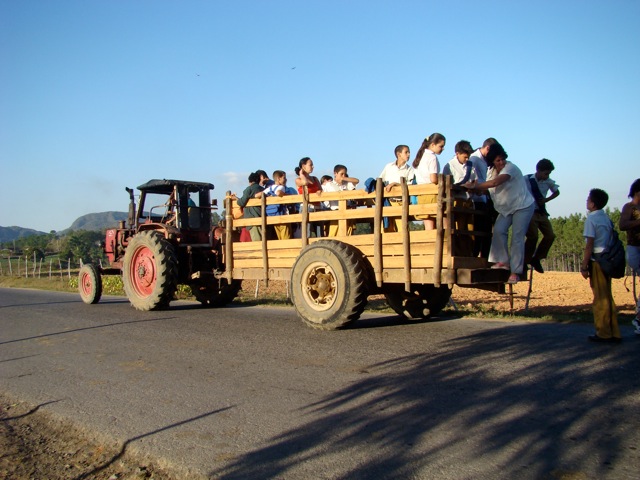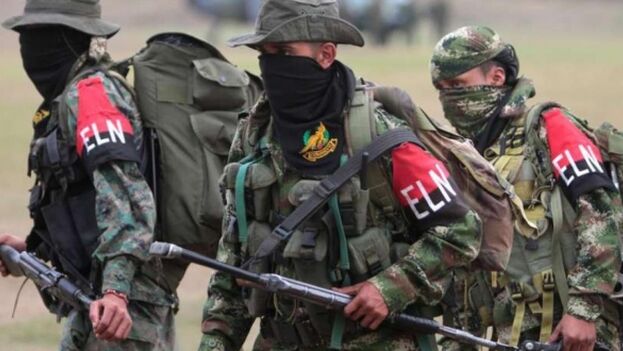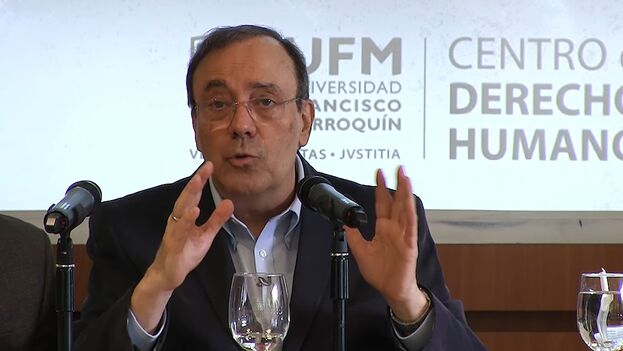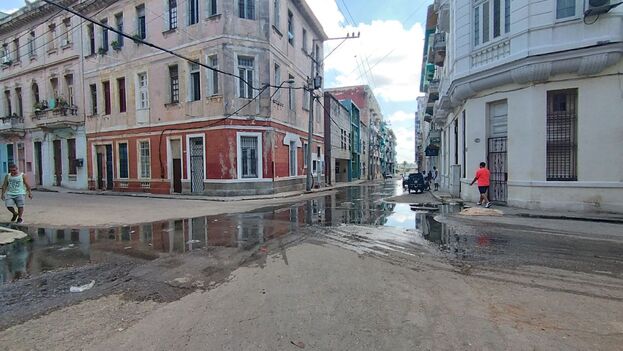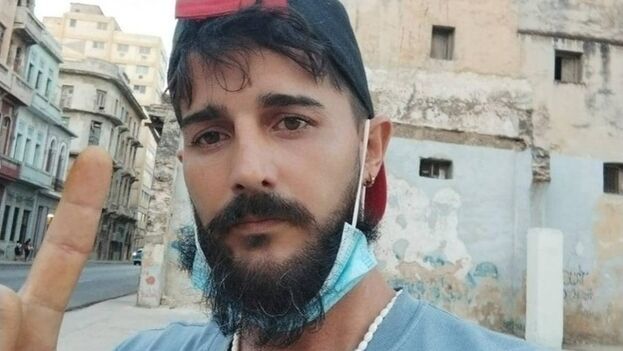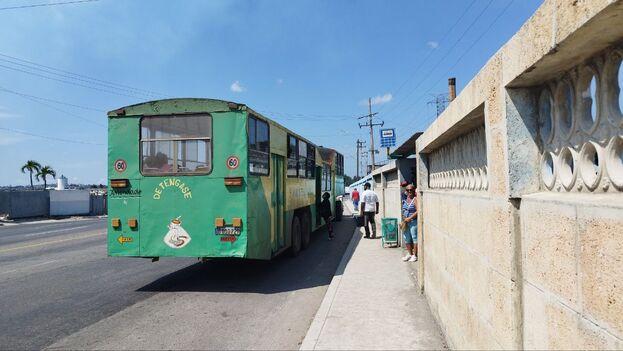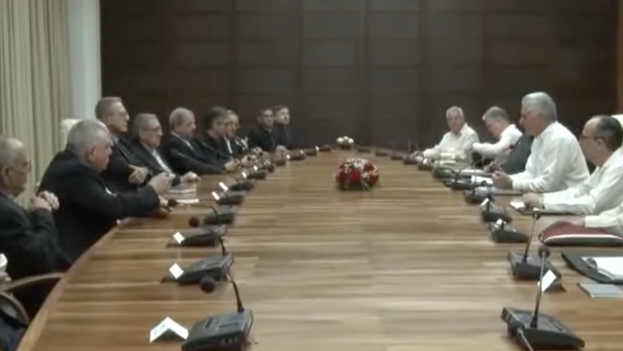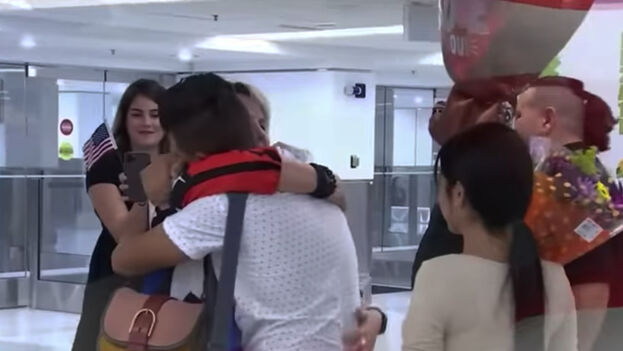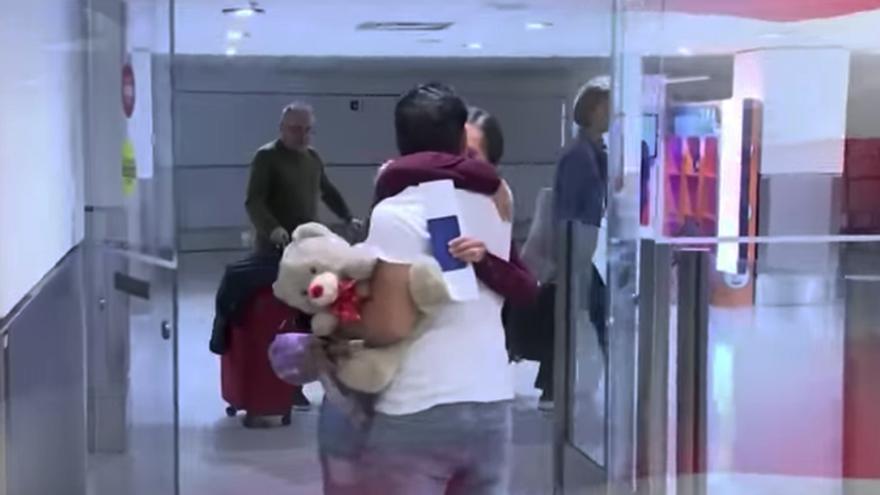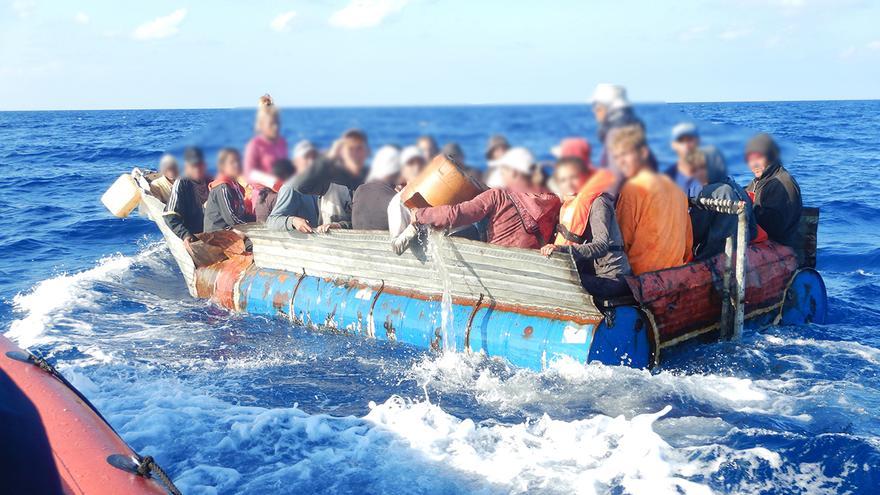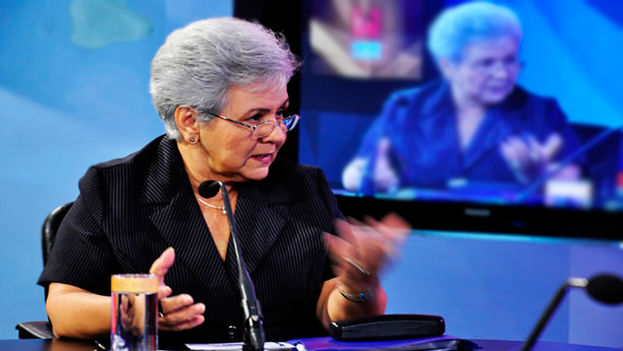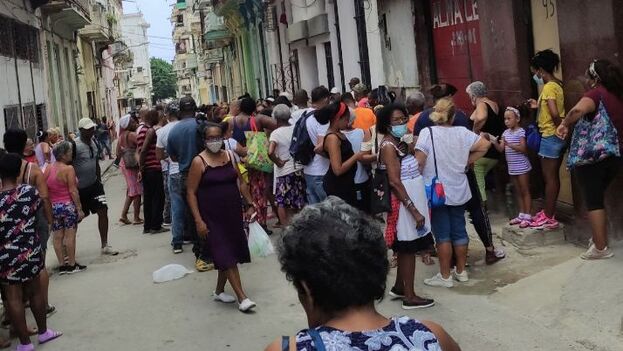Matéo, who could not enter the country until the travel restrictions were lifted due to the coronavirus pandemic, collected dozens of testimonies from the protesters and published them this year in Cuba… la patrie et la vie! [Cuba… Homeland and Life], VA Éditions), a detailed report that will soon come to light in Spanish by Ediciones Ecúmene. From Barcelona, the city where he lives, the author talks to 14ymedio about the present and future of the Island.
I have been reproached for interviewing certain opponents who now live outside Cuba and whom other exiled Cubans do not recognize as such. But I think there is no good or bad opponent: the opponent is whoever confronts the regime. The same thing happens with the media. A good media outlet about Cuba is the one that tells the truth. In that we must congratulate this newspaper, which, of course, is one of my sources of information.
It must be said that none of the characters in this book or the situations described are fictitious. The sufferings expressed are also real. In addition, most of the people cited have agreed to testify “openly.” The only concession to this reality refers to the (scarce) names modified for obvious security reasons. As I point out at the end of the book, some fictitious details also give coherence to the narrative to facilitate reading, without compromising witnesses. These small elements of fiction are actually necessary artifices in the story, to prevent the book from being a succession of facts that could be incomprehensible, especially for readers who do not know Cuba well or who have never been there.
Q. You talk about the difficulties of speaking to Europeans about the true Cuban reality. Is there an interest in the European media to know that true Cuba you describe or do they want to maintain the myth of “paradise” defended by the publisher who rejected your report, as you recount in your book?
A. In France there is still a kind of romanticism about the Cuban Revolution, Fidel Castro and Che. I wanted to tell the anecdote of that rejection because it was what drove me to write the book. To tell the reality of the Island you need a means of communication that allows you to do so, and I realized that in France it is very difficult to write about Cuba, in some cases because of that stale romanticism and in others because a caricature of the country is expected.
If you want to write about the Cuban political and social situation, you have to clarify. We must avoid falling into the trap of pointing out “the good and the bad,” with which we journalists struggle so much. Now Europeans are beginning to see things differently, because the tourism relationship with Cuba has also changed. You are seeing what never happened before: violence towards the tourists themselves, such as the famous “punctured tire scam” in the parking lot of the Che mausoleum in Santa Clara, where a French couple had to pay 400 euros to the criminals who damaged the tire themselves to have it repaired. That has changed the fantasy for tourists, but they are far from understanding what is really going on.
Q. Tell us more details about the perception of Cuba in the French media, the public and universities.
A. Before writing the book, I thought there wasn’t much interest in the Island. Now I realize that this disinterest was the result of misinformation. In the university system of France there is a left influenced by a certain philosophical tradition that starts from Sartre and, even in these years, the myth of Cuba is still alive. Many students are still seen with Che’s image on their clothes.
I have also realized that Castro propaganda is very effective. In addition, there is a very strong cultural relationship between the two countries, with music and cinema. The only major foreign film festival on the Island is French. And in Havana there are two very important cultural centers sponsored by France: the Alliance Française and the French Lyceum Alejo Carpentier, in addition to the Napoleonic Museum, which are still open and operating despite the situation.
On the other hand, the influence of Cuban diplomacy is such that it has managed to get the Paris Club to forgive a multimillion-dollar debt to the Island without knowing very well why.
Q. You comment on the complicity of French companies such as Pernod-Ricard and Bouygues with the regime. What is the position and interests of French businessmen on the Island? What about the Government?
A. The US pressure on the European banking system is so strong that French companies have decided to withdraw from the Cuban market, except for some historical ones, such as Pernod-Ricard and Bouygues. Accor sold its last hotel in Havana — the Royalton — and others have followed its example. There was a lot of interest in the 1990s, after a visit by Fidel Castro to Paris in 1994, and several cooperation agreements were signed with Cuban joint ventures. It was the moment when Pernod-Ricard bought Havana Club. Everything was ended due to corruption and the country’s own difficulties, in addition to US measures to prevent business from being done with Cuba.
Q. The US embargo, according to your book, remains one of the reasons for poverty in the country. Don’t you think that it’s a government alibi that has been working for six decades?
A. The embargo, as everyone knows, is one of the Cuban regime’s ways to stay where it is. But, in the end, those who suffers the most are the people. They have always known how to play with this very skillfully. For the United States it is a good operation; for the regime it is not bad business either, because that way they remain in power. I think that if the Americans had lifted the embargo from one day to the next, the regime would have fallen like a ripe fruit. Fidel learned from the Soviets about the effectiveness of suffering an external blockade. In the long run, the student surpassed his teachers.
Recently, the Cuban government called for the exiles to return as tourists. I find it incredible that citizens were forced to leave and now they are asked to return to consume and to send remittances. Who is left there? Those who have not been able to leave because they don’t have money or the opportunity to do so.
Q. Why do you consider that the medical brigades are the most effective tool of the “soft power” of the Cuban regime?
A. For me they are also a mafia. Now the management is in the hands of the Medical Services Marketer. When they arrived in France and Italy, everyone was happy and said: “The Cubans are coming to help us.” Some went so far as to say that we had to resort to the doctors of the Island because in France we do not have an adequate system. They spoke with ignorance, because they thought they were coming with humanitarian intentions, as they did in Andorra. But it is a system of slavery, without a doubt.
Q. Do you think that the conditions exist for a new series of protests such as those of 11J, despite the immigration stampede and the increase in repression?
A.. Things have only changed for the worse. The cry of the Cubans has not ceased either. But the most relevant phenomenon, since 11J, has been the flight of thousands of Cubans, and this is a new weapon for the regime. I’m not very optimistic. The last time I went, the state of discouragement was much greater than during the year of the protests. The conditions do exist: they are the same or harder than when 11J occurred. If something breaks out, it will be so violent that I don’t think it can be hoped for with joy.
There is a fundamental element in the exile, which is getting bigger and bigger. There are many activists and intellectuals who have left, and that is a disaster for the country. There are only the old people and those who are so discouraged that they can’t do anything. The country will have to be rebuilt one day from the ruins, but who will be left to do it? There is also a danger that the Cuban exile will become the active hand of the United States to take over the country. Everything could end up happening in a very chaotic way.
Q. You affirm that in 1959 “one dictatorship replaced the other.” Now there are changes that seem timid and uninteresting in the regime’s hierarchy, but that could be the prelude to a new era. What do you foresee for Cuba in the coming years, now that Raúl Castro has little time to live and his “strong man,” Luis Alberto Rodríguez López-Calleja, has died?
A. The closest thing to what could be expected for Cuba is perhaps the transition after the fall of the Berlin Wall in countries such as Poland, Russia or Ukraine, where many people took advantage of the situation to earn money. The Castros have already done everything possible to preserve their memory. A clear example is the museum that the family opened in Láncara, Galicia. It is a symbol: with the museum they launder their memory as much as their money, and Spain helped them. Without the commitment of democratic governments such as that of France or that of Spain itself, the transition will be a disaster for the Cuban people.
Translated by Regina Anavy
____________
COLLABORATE WITH OUR WORK: The 14ymedio team is committed to practicing serious journalism that reflects Cuba’s reality in all its depth. Thank you for joining us on this long journey. We invite you to continue supporting us by becoming a member of 14ymedio now. Together we can continue transforming journalism in Cuba.
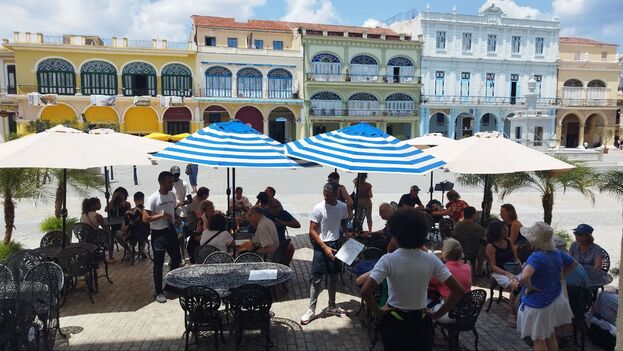
![]() 14ymedio, Madrid, 2 May 2023 — The sanctuary of the Virgin of Charity of Copper [“Cachita”], in Santiago de Cuba, with the superimposed effigy of a Cuban santera, is the striking image of one of the promotional posters of the 41st edition of the International Tourism Fair of the Island (FitCuba), inaugurated on May 1st.
14ymedio, Madrid, 2 May 2023 — The sanctuary of the Virgin of Charity of Copper [“Cachita”], in Santiago de Cuba, with the superimposed effigy of a Cuban santera, is the striking image of one of the promotional posters of the 41st edition of the International Tourism Fair of the Island (FitCuba), inaugurated on May 1st.

